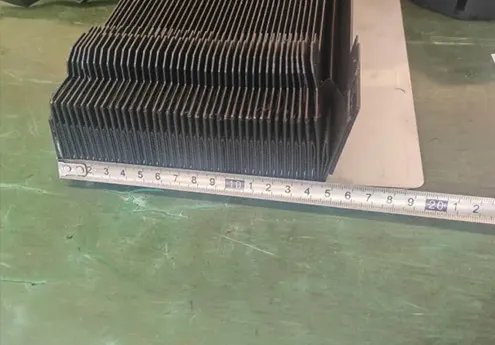Efficient Solutions for CNC Chip Transportation and Management Systems
The Importance of CNC Chip Conveyors in Modern Manufacturing
In today's fast-paced manufacturing landscape, efficiency and precision are paramount. With the growing reliance on Computer Numerical Control (CNC) machines, the production of high-quality parts has become more streamlined. However, one often overlooked aspect of the CNC machining process is the management of chips and waste materials generated during machining operations. This is where CNC chip conveyors come into play. These devices are crucial for maintaining an efficient, clean, and safe manufacturing environment.
Understanding CNC Chip Conveyors
CNC chip conveyors are designed to transport metal chips and other debris produced during machining processes away from the work area. These conveyors are essential for minimizing downtime, reducing labor costs, and maximizing the machining efficiency of CNC machines. By efficiently removing the chips from the machine, operators can focus more on production rather than on cleanup activities.
The chip conveyor system typically consists of a series of mechanical components designed to collect and transport waste materials. Common types of chip conveyors include belt-type, paddle-type, and magnetic conveyors. Each type has its unique advantages depending on the type of material being processed and the specific requirements of the manufacturing environment.
Benefits of CNC Chip Conveyors
1. Increased Productivity One of the primary benefits of using CNC chip conveyors is the significant increase in productivity. By automating the chip removal process, these conveyors help reduce machine downtime. Operators can allocate more time to running the CNC machines rather than cleaning out chips, leading to more efficient production cycles.
2. Improved Safety The presence of metal chips and debris can pose safety hazards for workers. Slips, trips, and falls can occur if the workspace is cluttered with waste materials. CNC chip conveyors help maintain a cleaner work environment, reducing the risk of accidents and ensuring the safety of personnel.
cnc chip conveyor

3. Enhanced Equipment Longevity Accumulation of chips and debris can lead to overheating and wear of CNC machine components. By transporting waste material away from the machine, chip conveyors help in minimizing the mechanical stress and wear on machinery. This not only prolongs the life of the CNC equipment but also reduces maintenance costs in the long run.
4. Effective Waste Management Using CNC chip conveyors facilitates better waste management practices. Many chip conveyors are designed to sort and separate different types of waste materials. This allows manufacturers to recycle metal chips more efficiently, reducing waste disposal costs and promoting sustainability in manufacturing practices.
Customization and Integration
CNC chip conveyors can be tailored to suit the specific needs of a manufacturing facility. Factors such as the size and type of chips generated, the layout of the production floor, and the type of CNC machines in use all influence the design of the conveyor system. Additionally, many modern chip conveyor systems can be integrated with CNC machines for seamless operation, allowing for data exchange and monitoring of chip removal activities.
Manufacturers often face challenges in choosing the right type of chip conveyor for their operations. Engaging with specialists or vendors who understand the requirements of CNC machining is vital to ensure that the appropriate systems are selected and effectively implemented.
Conclusion
In summary, CNC chip conveyors play a crucial role in modern manufacturing processes that rely on CNC technology. They facilitate increased productivity, improve workplace safety, enhance equipment longevity, and support effective waste management. As industries continue to evolve and adopt more advanced technologies, the need for efficient solutions to manage by-products will only grow. Investing in high-quality CNC chip conveyors is not merely a necessity for cleaning up; it is a strategic move that can lead to improved operational efficiency and sustainability in the long term. By recognizing the importance of chip management, manufacturers can harness the full potential of CNC machining and drive their operations toward greater success.








